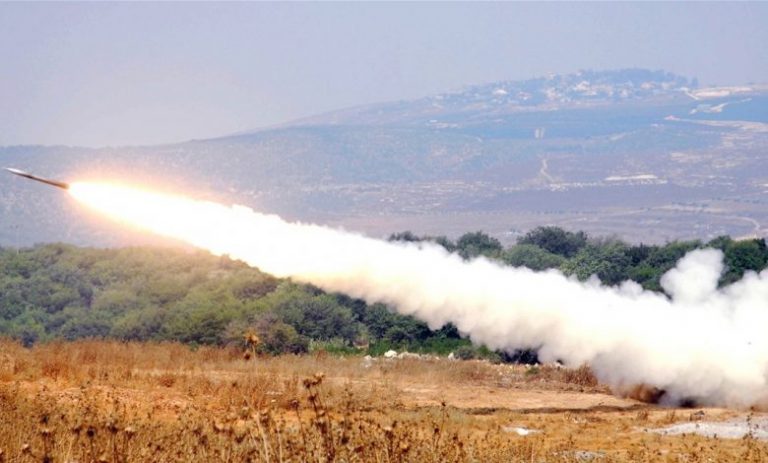This week remained subtle in terms of the new developments in the global affairs. It looked like the nations are trying to fix the issues that they have been facing for some time now. Amid the intensified Israel-Hamas conflict and the ongoing Russia-Ukraine war, member nations of G7 are all set to think over the plausible solutions for various global issues as the G7 summit is on in Italy. On the other hand, Hezbollah, launched rockets into northern Israel this week, heightening regional tensions at a time when the international community was advocating for a global ceasefire plan in Gaza. This incident took place during a visit by the US Secretary of State, Antony Blinken, who was promoting the ceasefire plan, which had not been fully accepted by either Israel or the Hamas organization, and for that matter other nations like Russia, with Hamas seeking revisions to the proposed agreement.
The ongoing tensions between Hezbollah, which is aligned with Hamas and supported by Iran, and Israel have led to almost daily exchanges of fire since the 8-month conflict between Israel and Hamas. Hezbollah is demanding a ceasefire in Gaza as a condition for a cessation of hostilities. This escalation of violence heightens concerns about the potential for a broader regional conflict. The most recent attacks involved the launch of approximately 150 projectiles from southern Lebanon, marking one of the largest such strikes to date. Sirens were activated in northern Israel, though no casualties have been reported, with some of the projectiles being intercepted and others causing brush fires.
The US government is pursuing a gradual ceasefire agreement to stabilize the regional conflict, predicated on Hamas releasing the last of the captives taken in a previous assault. The United Nations Security Council (UNSC) has endorsed this proposal, though Israel’s support for the plan remains uncertain. Hamas has expressed general approval for the framework of the agreement but has raised concerns over Israel’s willingness to adhere to the terms of a permanent peace settlement and to withdraw from Gaza. Russia and China also used their veto power in the UNSC to register their reservations regarding the draft ceasefire proposal.
Despite knowing the fact that violence, conflicts and wars do not benefit any country in any way, countries not only engage in violent conflicts, they also pose a serious challenge to global peace, security, humanity and economy. Ongoing Israel-Hamas conflict can be quoted as a classic example here. First, Hamas, a worldwide ill-famed terrorist organisation, attacked Israel on 7 October 2023. Rattled with the barbaric terrorist attack on its people including children and women, Israel announced a war against Hamas until it is eliminated completely. Since then, both Israel and Hamas are fighting a war that is impacting innocent people, and global peace and security by and large. Involvement of the surrounding nations and their statements have continuously fuelled the tensions. India has so far put forward a very mature face by stating clearly on one hand that it stands with Israel against the brutal terror attack by Hamas, while reiterating its support for free Palestine on the other hand. Indian stand on Israel-Palestine conflict can be taken by the other leaders as well to resolve the conflict. Both Israel and Palestine need to respect each other’s territorial integrity. However, rest of the world, especially those who are supporting Hamas for whatever reason, need to understand that a terrorist organisation cannot be considered face of a democratic country. This understanding may help in resolving the conflict. Hope the leaders realise that this is not the right time to fight for small egos and work together to bring back peace in the Levant region.
On the other hand, this week, Narendra Modi reinstated his commitment for global objectives like climate change containment, sustainable development, women-led development and more after taking the oath as the Prime Minter of India, third time. This week, he left for Italy to participate in the annual G7 summit, which convenes the leaders of the world’s most advanced economies. His participation at the 2024 G7 summit provides a wonderful opportunity to build upon the outcomes of the G20 summit hosted by India the previous year. The G7 meeting is taking place in Italy from 13-15 June. The discussions are expected to centre around the ongoing conflict in Ukraine and the situation in Gaza. This marks India’s eleventh participation in the G7 summit, and Narendra Modi’s fifth consecutive attendance. Italy, the current G7 Chair, is hosting the summit, which includes Canada, France, Germany, Japan, the UK, the US as well as the EU. The agenda for the G7 Summit aims to cover the Russia-Ukraine conflict, Israel-Hamas conflict, relationships with developing nations, migration, the interconnection between climate and energy, food security, and Artificial Intelligence. Apart from participating in the summit, Indian Prime Minister is also holding bilateral talks with his Italian counterpart to further strengthen the partnership between both the nations. Usually, great powers fight for hegemony.
Sometimes they fight alone, sometimes they club, at times they bandwagon all depending on the situation and their priorities. All they need to remember is that this maze of global politics does not spare anyone. They should focus on development, hegemony would follow.
The author is Professor, School of International Studies, JNU







